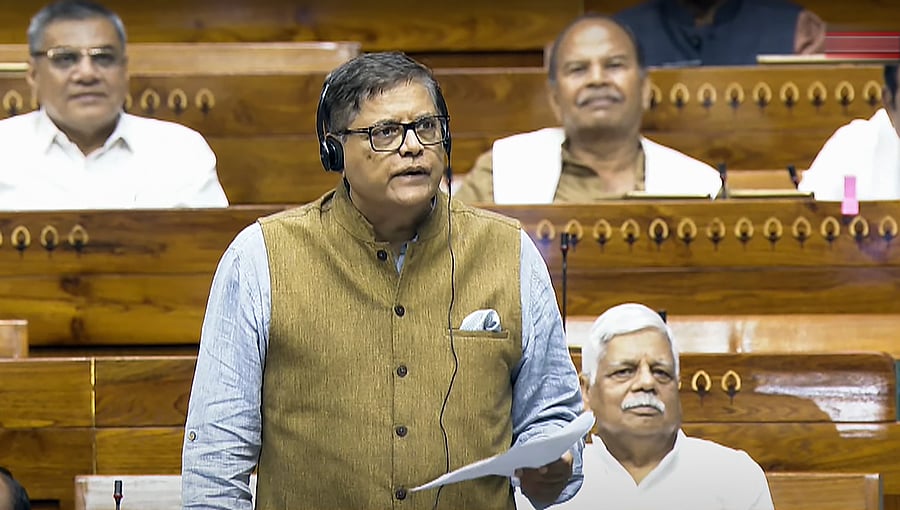
Baijayant Jay Panda speaks in the Lok Sabha on Monday.
Credit: PTI Photo
New Delhi: A parliamentary panel reviewing the Income Tax Bill, 2025 has suggested that individual taxpayers should be allowed to claim TDS refunds beyond the return filing deadline without attracting penalties.
The panel, chaired by BJP MP Baijayant Panda, has also called for restoration of exemptions on anonymous donations to trusts serving religious and charitable purposes.
The panel submitted its recommendations on the bill in Lok Sabha on Monday. The Income Tax Bill, which was introduced in Lok Sabha on February 13 by Finance Minister Nirmala Sitharaman, seeks to replace the over six-decade old Income Tax Act, 1961.
TDS or tax deducted at source is a withholding tax that requires the payer, of say salary, rent, interest on bank deposits etc, to deduct a certain amount of money as a tax before making the payment. Refund arises when the tax paid by way of TDS is higher than the actual tax liability during the financial year.
To get the TDS refunds taxpayers are required to file the income tax return before the deadline, which is usually December 31 of the assessment year.
In the new proposed income tax law, the 31-member Select Committee of the Lok Sabha, has proposed for elimination the Income Tax Bill clause that requires mandatory filing of Income Tax returns by the deadline.
The parliamentary panel has also suggested that the ambiguity with regard to Non-Profit Organisations (NPOs), especially those with mixed charitable and religious objectives, for taxing anonymous donations should be removed.
It has also pitched for addressing several drafting anomalies in the Bill to bring clarity and avoid litigation.
The industry appreciates that the recommendations allay some of the concerns like inter-corporate dividend deduction for lower corporate tax rate of 22 per cent, ability to avail NIL withholding certificates, clarity on R&D deduction for inhouse R&D facility, and expansion of scope of definition of "associated enterprises", said Sameer Gupta, Partner and National Tax Leader, EY India.
However, the Committee appears to have stayed within its mandate, focusing primarily on drafting clarity rather than recommending policy-level changes, Gupta added.
The 4575-page report of the Select Committee on the Income Tax Bill, 2025, also carries notes/minutes of dissent from three members including a BJP MP Shashank Mani.
Rohinton Sidhwa, Partner, Deloitte India, said the larger set of amendments in the latest round are corrective and meant to fix errors in drafting from the first draft released for public comment.
“The report provides clause by clause evaluation of the Bill with a total 566 observations / recommendations for change. This is a mammoth task performed in a record time with precise and relevant recommendations,” said Preeti Sharma, Partner, Tax and Regulatory Services, BDO India.